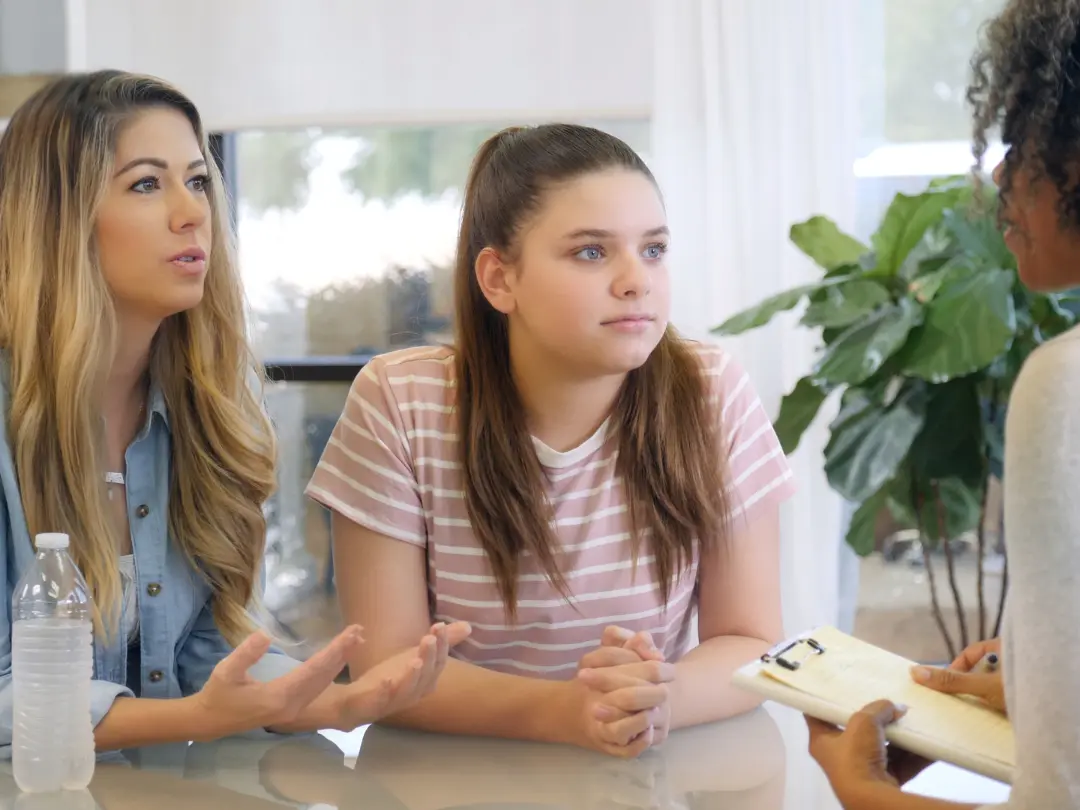Why can’t we just be happy with our bodies? This seemingly simple question prompts some complex answers. While depression, dysmorphia, bullying, and unhealthy relationships with social media can contribute to low self-esteem or dissatisfaction with our bodies, the underlying theme is toxic beauty standards. Recently, the “almond mom” trend on TikTok has attempted to deconstruct the long-lasting effects of diet culture.
“A moment on the lips, forever on the hips.” The next generation, struck by Kate Moss and her heroin chic style, clung to the infamous phrase, “Nothing tastes as good as being skinny feels.” As disturbing as it is to say either of these to a young girl, most of us were familiar with this experience before our teen years began. Forever on the hips? More like forever on the brain. How can we love ourselves when we were taught (by the ones who supposedly love us most) that we would be a little easier to love if we dropped a couple of pounds?
What is an almond mom?
The term “almond mom” originated on social media to describe a generation of mothers enamored with diet culture, often limiting their children’s diets and encouraging disordered eating habits. The “almond mom” started after a clip of Yolanda Hadid (of Real Housewives fame) went viral for telling her daughter to eat an almond when she’s hungry. In the video, her daughter Gigi Hadid, a successful supermodel, calls her to tell her she’s “feeling weak” and that she had “half an almond.” Yolanda’s response? “Have a couple of almonds and chew them really well.”
Recognizing the harmful effects of food policing
When Yolanda took to social media to mock the backlash against #almondmom, pediatricians and therapists were not amused. Dr. Karla Lester warns against orthorexia, which can present as an obsession with being healthy. “What diet culture teaches us is that people say they’re pursuing health or wellness, but actually, they’re pursuing thin privilege.” Through her daughters’ successes, Yolanda is able to promote thinness as morally superior and disordered eating as a discipline.
However “well-meaning” the intentions may be, the chiding voice of the almond mom never stops negatively impacting their child. The almond mom’s message is subtle, but clear: “You would be a little better if you looked like this.” And over time, that message becomes our internal voice. By projecting their own disordered eating habits onto their children, almond moms reinforce a harmful culture from which it can take a lifetime for their children to recover.
Future is focusing on body positivity
Toxic diet culture is nothing new, but a new generation of women is choosing to focus on body positivity. TikTok users are taking to the platform to shed the toxic mantras of their almond moms. Superstars like Lizzo are changing the way that women’s bodies are both perceived and policed. And her message resonates with viewers: fat and beautiful are not mutually exclusive!
Lizzo takes to social media regularly to celebrate and promote body positivity, captioning one Instagram post, “I started talking to my belly this year. Blowing her kisses and showering her with praises. I used to want to cut my stomach off I hated it so much. But it’s literally me.” The children of almond moms are raising their own kids, but they’re determined to break the traumatic cycle of unhealthy body image. As our queen Lizzo would say, it’s “about damn time!”
Recovering from diet culture
Learning to love your body is important, but it can take more than daily affirmations to undo all the hatred you’ve been taught. Healing your body, and your relationship with your body, can take time. As you learn to listen to your body’s needs and begin to understand it as a way to accomplish your dreams, try to shift your thinking about food choices. Instead of regarding food as simply caloric intake, realize it as a source of strength and power. Food is more than fuel! It’s a relationship, a way of loving and appreciating yourself the way you deserve.
But toxic diet culture runs deep, and it can be hard to avoid. And no one is more of a target than a woman who finds power in her body image! If your body positivity is bringing on your biggest hater, here are some ways you can defend your mental health and break the cycle of trauma. If you’re struggling with body image and self-esteem, you can talk to a licensed counselor today about healthy coping mechanisms.
Dealing with your almond mom
Moms know how to push our buttons. And with almond moms, there’s the added element of hunger! If you’re worried about having a go at it, have a couple of go-to phrases prepared. When it comes down to a difference of what’s “better for you,” it’s often best to keep it simple. If your almond mom is known to say, “Mmm … I’m so full!” after a few bites, take dinner into your own hands. Don’t let your almond mom be in charge of dinner plans– she lost that privilege with the first meal she replaced with a nut. You, on the other hand, take a good meal seriously.
If you are taking the kids to grandma’s, bring your own snacks. Make the dinner reservations. Hell, bring the main course! Make sure to share, but don’t engage in toxic or circular conversations. If you have to reinstate a boundary, do so firmly and simply. “I’m still hungry, so we’re going to go pick up some food. We’d love it if you came.” Don’t make it an emotional conversation– remember, food is a physical need.
How to not be an almond mom
When deconstructing our own beliefs about food and our body, it’s easy to label things as “good” or “bad.” But as a parent, you want to help your child come to the same realization you did, that food is a source of strength and power. Here are a few ways to reinforce a healthy relationship with food.
- Eat breakfast together every morning. If you’re pressed for prep time or fresh ingredients, top instant oatmeal or individual yogurts with muesli or granola and frozen blueberries. An Instagram-worthy meal in just a few minutes!
- Don’t mention your child’s weight or body size. If you become concerned about overeating, discuss it with a professional first. If they outgrow their favorite pants, make this formative shopping experience a fun one.
- Model body positivity. Practice those daily affirmations in the mirror. When you show yourself and your body love, you can continue to spread that to your kids, too! Remember, your “outside” voice becomes your child’s inner voice.
Learn how to nourish your body and mind with a specialized treatment plan
If you find yourself experiencing guilt while deconstructing your own beauty standards, or those of your almond mom, New Hope knows what it’s like and we’re here to help! We are located in Columbia, South Carolina, but with our accessible virtual appointments, our therapists are able to help patients across the country. At New Hope Counseling and Wellness, we know that recovering from toxic diet culture can be a daily struggle, but it doesn’t have to last a lifetime. We provide trauma-informed care and counseling and therapy for nutrition, eating disorders, trauma, and PTSD to the Richland county and Lexington county areas.
We also offer a variety of online courses for individuals seeking recovery from eating disorders, trauma, and narcissistic abuse. For example, register for Hope For Recovered Living and learn how to discover your true identity, find peace, and move from recovery to recovered. Plus, you will have access to a private Facebook group where you can share thoughts, feelings, and personal stories with other individuals facing similar challenges.
There is HOPE and you are not alone. Contact us today to start your personal journey to wellness!








